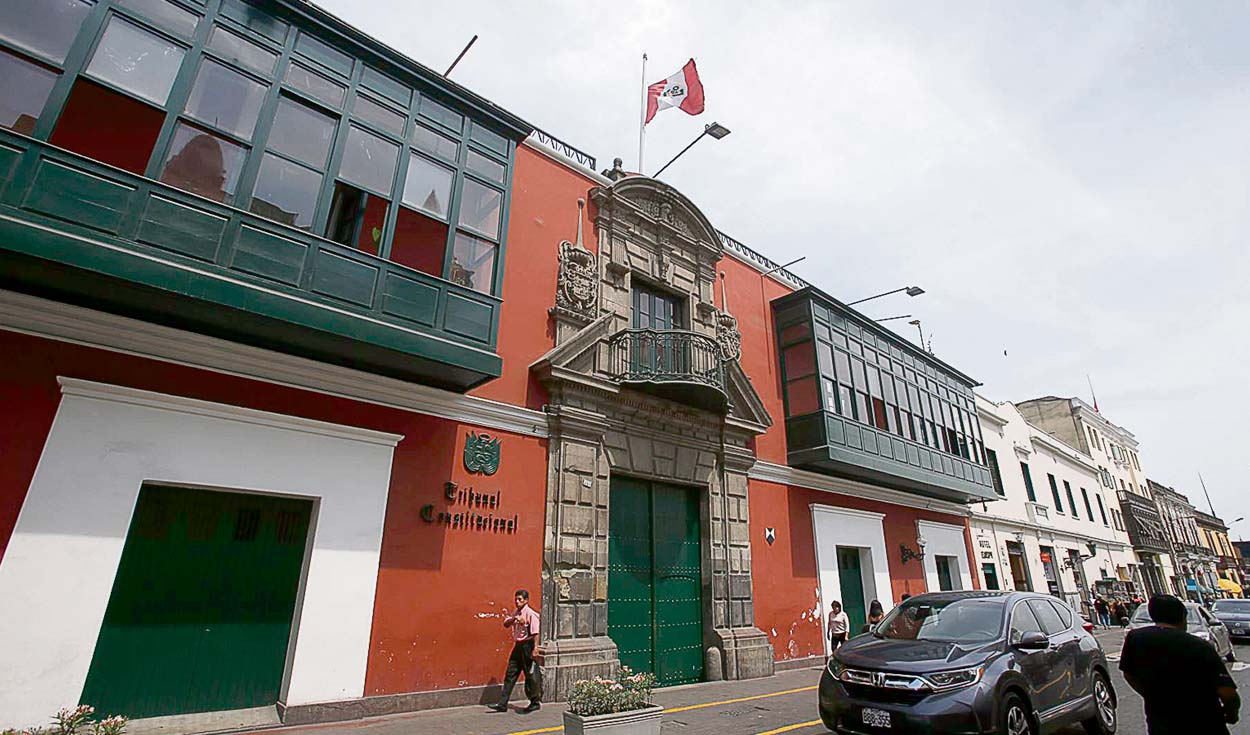
Question the ruling of the TC. Sunat indicates that decision would imply a cost of S/12,000 million. In addition, cases with final judgments in favor of the Government are in danger.
The Ministry of Economy and Finance (MEF) spoke out against the latest ruling of the Constitutional Court (TC), which prohibits the Sunat and the Tax court charge default interest to debtor companies whose legal term set in the Tax Code has expired while judicial disputes with the State are maintained.
For this reason, the office headed by Alex Contreras requests a clarification of the sentence, so that the TC can reconsider its decision.
Previously, the Sunat – an entity attached to the MEF – requested that said resolution be declared null and void, which stems from the amparo lawsuit filed by Maxco SA., because it would create a precedent for large companies to stop paying more than S/12,000 million for unpaid tax interest.
Along these lines, the MEF reiterated that the TC would be exceeding its powers and transgressing the principle of functional correction due to the fact that a large part of the default interest on debts in tax disputes would be eliminated in all instances: Sunat, Tax Court and Judiciary.
In addition, they specify that the application of the new default interest rate (TIM) will be suppressed when these cases reach the Judiciary.
“Through this sentence, the TC assumes the role of a positive legislator and thus exceeds its powers, transgressing the principle of functional correctness and severely affecting tax policy,” the office of Jirón Junín asserted.
blanket amnesty
In this way, the MEF specified that it would be attacking the tax policy developed in the last 30 years and that this will in practice cause an amnesty for companies that resort to litigation.
“They will not pay compensation to the State for the non-timely payment of their tax debts, penalizing the good taxpayers who did pay what was owed on time. A discriminatory treatment is generated to the detriment of good taxpayers”, according to a statement from the MEF.
Thus, the MEF reiterated that this ruling could become an application rule for all taxpayers, which would put at risk the cases that have recently obtained final rulings from the Judiciary in favor of the Peruvian Government (such as the recent ruling of the Supreme Court to Telefónica for around S/3,000 million). According to a report from Liber Center, there are 100 companies that owe the largest amount of money to the Peruvian State. In total, the amount amounts to around S/28,000 million. The company leads this ranking with around S/5,500 million in debt Telefonica del Peru.
Jurist Odría: TC ruling favors taxpayers
For Raul Odriapartner in Jamis Dalguerre Lawyers & Associatesthe millions that the Sunat will stop collecting, as they declared, should never have been considered as a tax debt because they were illegally determined.
He asserted that it is false that the ruling of the TC favors the big enterprisesbut it would be a transversal pronouncement that favors all taxpayers.
According to Odría, the appeal for annulment filed by the Sunat against the judgment of the TC is based on “non-relevant formal aspects”.
Approach:
Alex Contreras, Minister of Economy and Finance:
“It is a measure that has a negative impact on the country’s public finances and there are several elements that we object to. In the short term, we will lose close to S/2,400 million”.
Source: Larepublica
Alia is a professional author and journalist, working at 247 news agency. She writes on various topics from economy news to general interest pieces, providing readers with relevant and informative content. With years of experience, she brings a unique perspective and in-depth analysis to her work.












